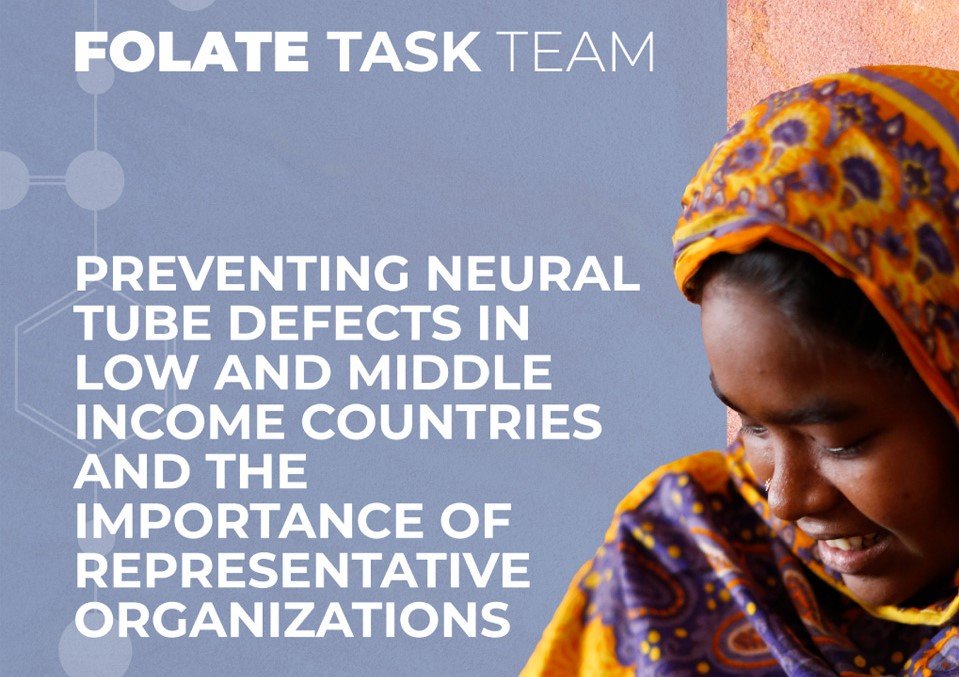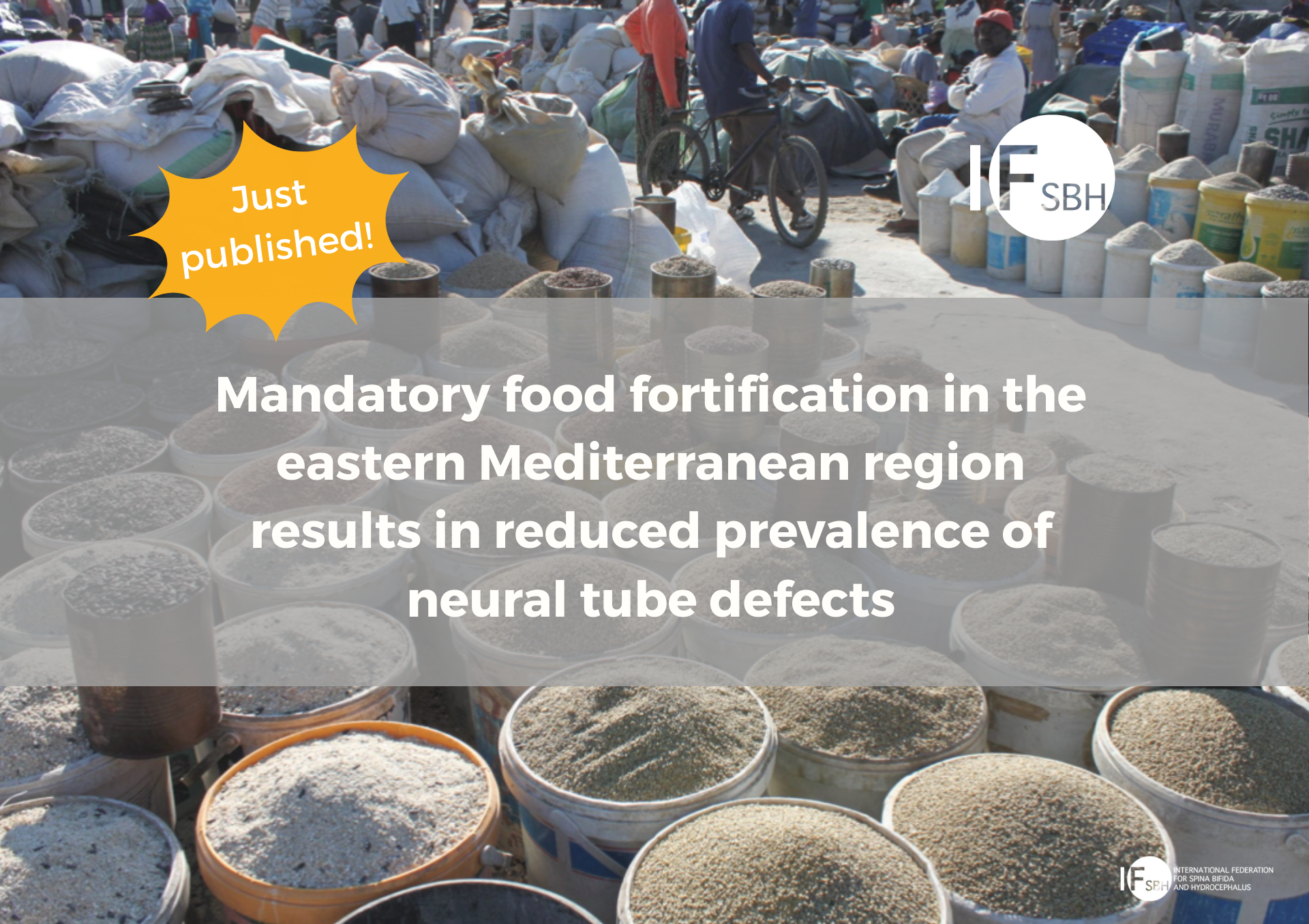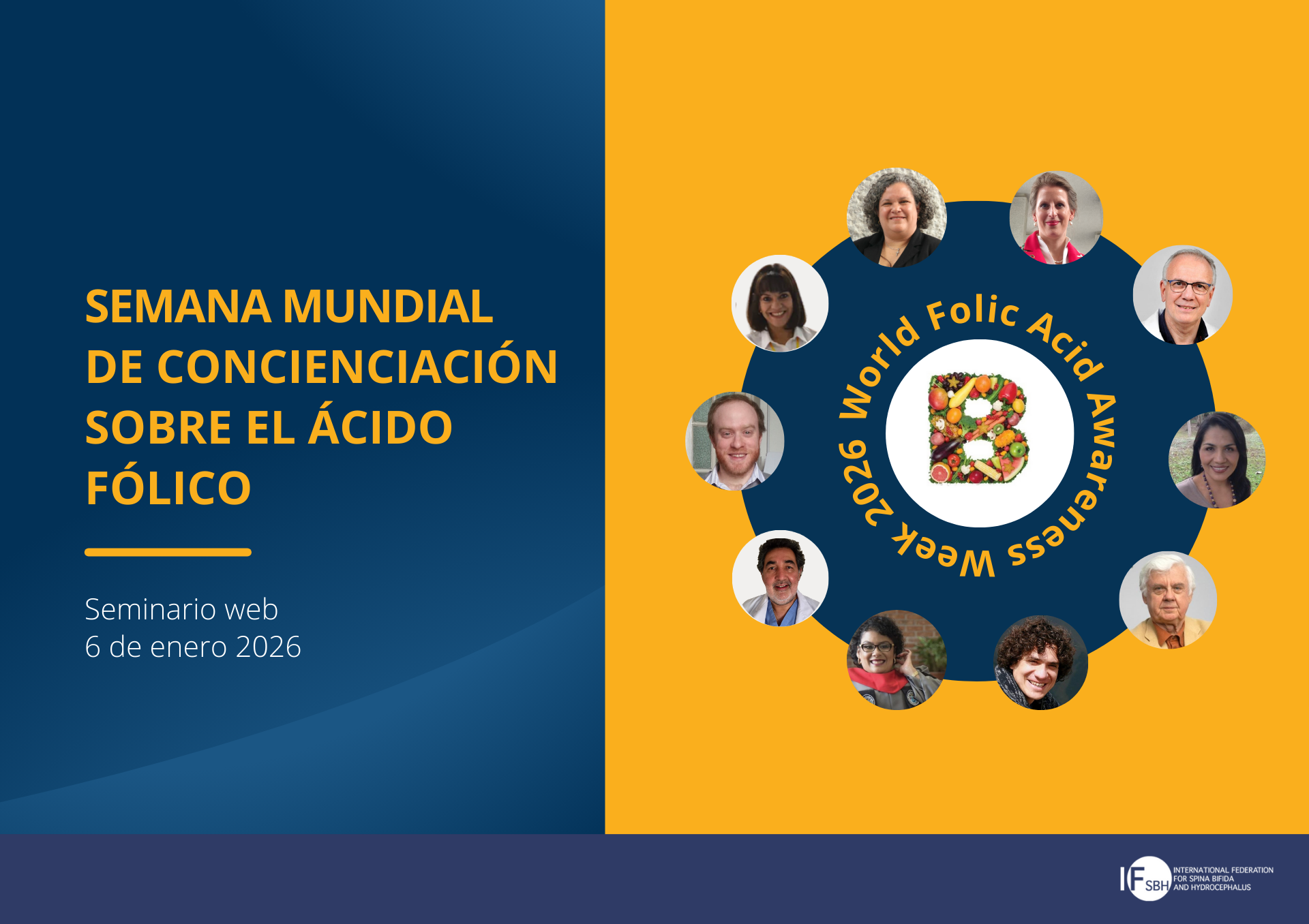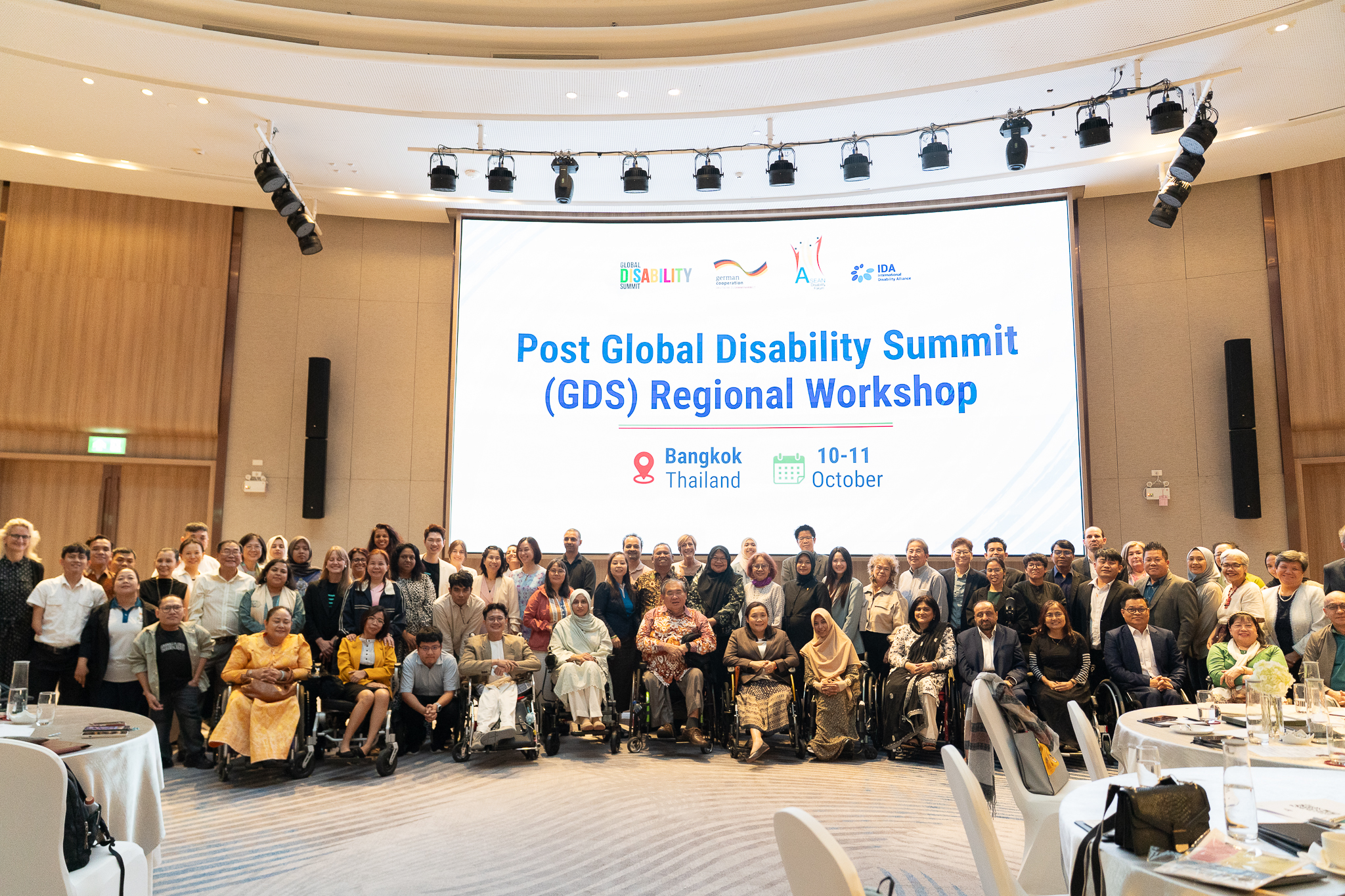IF is proud to have contributed to two new Knowledge Briefs, published this month by the Folate Task Team, a project initiated by Nutrition International, which is supported by a grant of the Bill and Melinda Gates Foundation:
- Knowledge Brief – Preventing neural tube defects in low and middle income countries and the importance of representative organizations
- Knowledge Brief – The policy environment for folic acid interventions to prevent NTDs
In countries where resources are low, children born with neural tube defects (NTDs) such as spina bifida – and the associated hydrocephalus – are at increased risk of premature death due to stigma and non-treatment. Adequate strategies to reduce the incidence of NTDs, such as folic acid supplementation and mandatory food fortification, are essential.
Improved education and awareness raising at national, regional and community levels around the topics of preconception health, birth spacing, nutrition, and folic acid is pivotal for the success of any preventive programs.
Representative organizations such as IF and its members are in a unique position to raise awareness of NTDs, and to draw attention to the reality of what it means to live with spina bifida and/or hydrocephalus. Organizations at national or regional level also have a unique understanding of the cultural environment, including the cultural barriers related to diet and religious beliefs that often prevent compliance.
It is essential that representative organizations are consulted and involved in policy development, for instance to ensure that primary prevention campaigns do not carry hidden, discriminatory messages, to safeguard the dignity of people born with disabilities.
Both Knowledge Briefs point out the importance of the UN Convention on the Rights of Persons with Disabilities in this context, which states: “persons with disabilities should have the opportunity to be actively involved in decision-making processes about policies and programmes, including those directly concerning them”.





